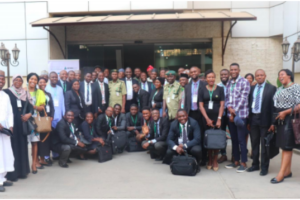The limited influence of case-law in civil law countries is consistent with historical differences in the role of judges. At the time of the French Revolution, judges in France wielded great power—and in many crucial aspects, irresponsibly. Afterwards, Continental legal professionals agreed on the necessity for corrective measures, and these reforms cast civil law judges in the role of government civil servants, as opposed to members of a co-equal branch of government. Consequently, it is not surprising that the acceptance of any variant of the concept of judicial review has developed more slowly in civil law systems, and even to this day, some civil law countries do not have judicial review as understood in American legal parlance.
The Continental measures taken to remedy and avoid the judicial abuses of the French Revolution promoted the concept of parliamentary supremacy. In contrast, the common law is more associated with the concept of judges serving as a check on the powers of the other branches of government. This function does not signify freedom from legislative direction, but rather, it suggests that the legislative branch, like the other branches, operates within, not above, the larger constitutional framework.
Shortly after the French Revolution, the U.S. Supreme Court formally embraced this understanding in Marbury v. Madison, establishing a central, constitutional role for the American judiciary. Asserting the power of the judiciary to review legislative and executive acts for their constitutionality, the U.S. Supreme Court unequivocally declared the judiciary to be a co-equal branch of government.
If all common law systems possessed Marbury judicial review, the classification of legal systems would be greatly simplified. However, this type of judicial review is not found in all common law jurisdictions, and as noted, very similar review powers can be found in some civil law countries. For example, England, the ancestral home of common law, historically did not possess this type of judicial review, and Germany, a pillar of the civil law tradition, has a Constitutional Court that exercises powers quite similar to this form of judicial review.
The German Constitutional Court, or Bundesverfassungsgericht, serves as the final arbiter in all constitutional matters. The claims brought before the court can range from alleged violations of individual civil liberties to disputes among government institutions regarding their powers and competencies. Cases typically come to the Constitutional Court through individual petitions and referrals from ordinary courts.
In contrast to the American system, where lower courts commonly decide novel constitutional questions, German ordinary courts refer such constitutional disputes to the Constitutional Court for resolution. This variant of judicial review is commonly referred to as “centralized” judicial review, to be contrasted with the American system of “diffuse” judicial review. The rationale for centralized review has roots in the Continental reforms that followed the French Revolution. Consistent with the concept of judges as civil servants, the German system does not empower ordinary judges to serve as a check on the powers exercised by the other branches of government.
Moreover, while the Constitutional Court is a “judicial” body, German legal practitioners will emphatically insist that it is not a part of the judiciary. Because checking the power of other government institutions is a political act, they maintain these duties must be conducted by a political, as opposed to a judicial, body. Consistent with this approach, the members of the Constitutional Court are political appointees selected for staggered terms by the legislative branch.




